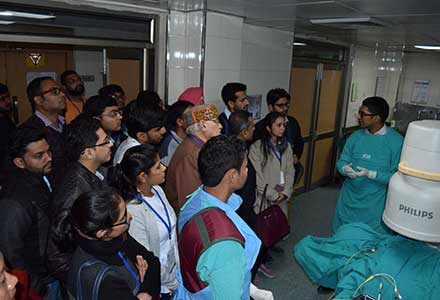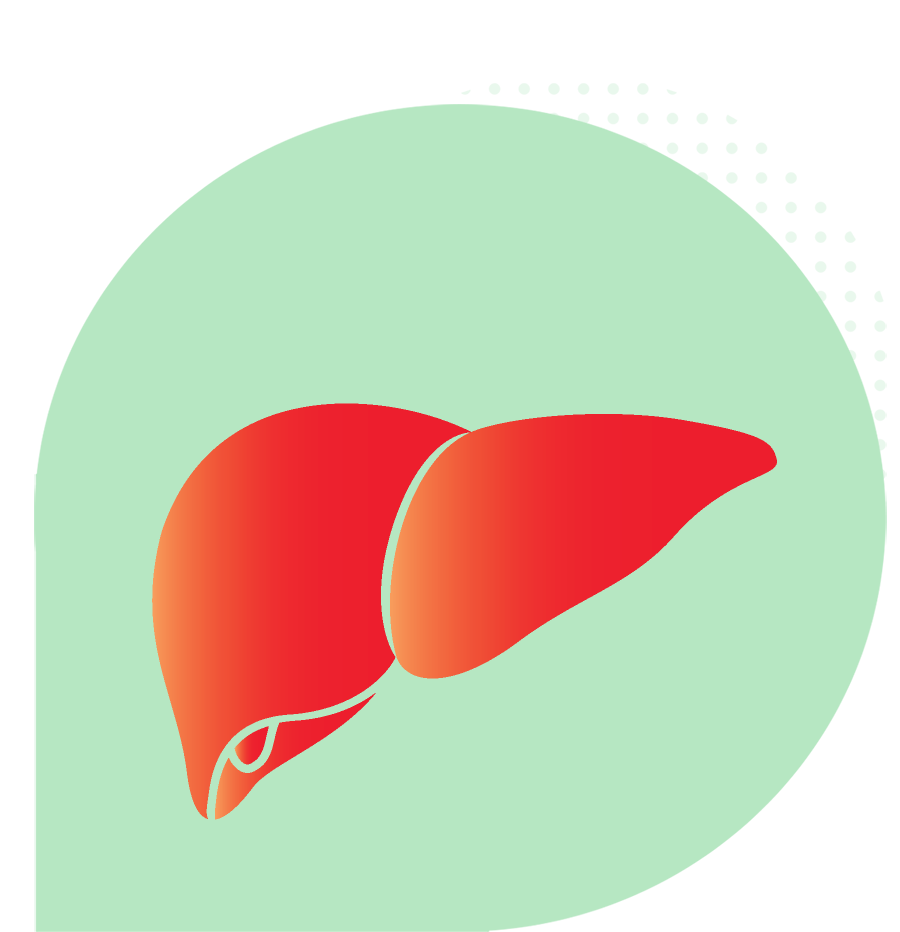Owing to numerous challenges, doctors in a country like India cannot take the burden in putting emphasis or explaining the disease prevention part in detail. A 2011 study estimated that India has roughly 20 health workers per 10,000 population, with allopathic doctors comprising only 31% of the workforce. This also is not distributed optimally, with most preferring to work in areas where infrastructure and facilities for family life and growth are higher. In general, the poorer areas of Northern and Central India have lower densities of health workers compared to the Southern state. Therefore, people remain unknown about the facts and strategies to prevent further complications. Lack of time is a considerable barrier, preventing doctors from providing sufficient information to their patients and blocking their ability to share decisions in practice. (Kaplan SH, Med Care 1176-87. [PubMed]) Addressing the gaps is essential as the ultimate sufferer is the patient itself. It is time for empowering health human power to be articulated to ensure that every patient is taken care of by a sensitive, trained, and competent healthcare worker.
First and foremost, step towards addressing the issue is health care system strengthening through medical education programs, specifically designed to upscale the knowledge and practices among healthcare professionals.
The Hepatitis Induction Program (HIP) is designed to emphasis on providing an update on all aspects of viral hepatitis. The program focuses on sensitizing medical professionals on multiple aspects of viral hepatitis testing and treatment; how doctors in a primary center can provide timely treatment to the patients and importance of early screening in viral hepatitis. The one-day program will provide doctors a much-needed insight on patient management in viral hepatitis. The program is a first step in providing detailed knowledge on viral hepatitis and its complications through continued educational programs like Hepatitis Update Program.
Medical management of viral hepatitis has several components which will be discussed in detail in Hepatitis Update Program.

| DETAILS | SPEAKERS |
| Pre-training assessmentProject PRAKASH – purpose of training Brief discussion on HIP & HUP, role of healthcare workers in viral hepatitis elimination, brief of the program | Ms. Akanksha Bansal |
| Overview & Epidemiology of viral hepatitis Mortality and geographical distribution of viral hepatitis; genotypes; natural history; transmission; diagnosis; burden and risk factors and prevention. | Dr. Archana Ramalingam |
| Interpretation of investigations in viral hepatitis – LFTs, Fibro scan, Biopsy, Ultrasound Role of Biopsy and Transient Elastography in detection of liver damage; how to interpret findings; different stages of damage; viral markers detection. | Dr. S. K. Sarin |
| Overview of viral hepatitis – complications & treatment Management of viral hepatitis A- E; compensated and decompensated events; acute vs chronic hepatitis; clinical manifestations of chronic liver disease. | Dr. Manoj K Sharma |
| How to monitor & When to refer patients Role of direct acting antivirals, treatment of hepatitis patients at primary centers; monitoring and evaluation. Referral of critical cases to tertiary or super specialty centers. | Dr. Ankur Jindal |
| Post training assessment | Ms. Akanksha Bansal |
Viral hepatitis is a cause for major health care burden in India. Hepatitis B, when acquired at or near delivery, is transmitted vertically in as high as 60% of unborn children. This has grave consequences for the child as nearly 90% of these infections shall become chronic and translate into liver cirrhosis or hepato-cellular carcinoma in the children. hepatitis c is well known to get transmitted vertically and the virus may lead to hepato-cellular carcinoma in the mother as well as the child. Hepatitis E, shows an increased attack rate in pregnancy. The incidence of fulminant hepatic failure and mortality rate is much higher than that associated with other hepatic viral infections.

The aim of the training is to find out the causes, clinical course and factors predictive of mortality and morbidity associated with viral hepatitis in context of Indian scenario and to come up with a consensus statement to reduce the burden of viral hepatitis in the country. The program focuses on providing much needed diagnostic and treatment support to the patients at primary healthcare level by upskilling doctors working in primary healthcare settings.
The hepatitis Update Program aims at providing comprehensive continuous e-learning program (virtual) for doctors who have attended 1-day Hepatitis Induction Program. The training in depth will discuss about the types of viral hepatitis, its signs and symptoms, epidemiology, laboratory diagnosis, management and prevention.
| TOPICS | SPEAKERS |
Introduction to the Program & Do’s & Don’ts in a virtual classroom Brief discussion on project PRAKASH & HUP; role of healthcare workers in viral hepatitis elimination; and do’s and don’ts in virtual hepatitis | Ms. Akanksha Bansal |
| Module 1 | Epidemiology of Viral Hepatitis | |
Overview & Epidemiology of Viral Hepatitis Historical perspective; virology; epidemiology of viral hepatitis; SDG goal 3.3; global health strategy; high risk groups, clinical outcomes; prevention | Dr. Kanica Kaushal |
Interpretations of Investigations – LFTs, Fibro scan, Biopsy, Ultrasound Interpretations of LFTs, serology, viral markers, fibrosis, ultrasound etc. Limitations of fibroscan | Dr. Harshvardhan Tewathia |
Module 2 | Laboratory Diagnosis & Management of Viral Hepatitis | |
Laboratory Diagnosis of Viral Hepatitis Diagnostic methods in clinical virology; evolution of virology testing, current methods, advancements and innovations; virology markers in HBV & HCV; viral hepatitis testing methodologies | Dr. Ekta Gupta |
Viral Hepatitis A & E Virology; epidemiology; clinical features- special scenarios; diagnosis; treatment and vaccination in viral hepatitis A & E. | Dr. Ankur Jindal |
Viral Hepatitis B & D Carrier or Chronic HBV Infection; management of drugs – NUCS, Ifn, combination, new targets, fecal transplantation; diagnosis of stages of HDV; algorithm for evaluation; current guidance; co-infection; vaccination & immunization. | Dr. S. K. Sarin |
Viral Hepatitis C Acute & chronic infection; natural history; diagnosis & testing; algorithm to assess severity; whom to treat and goals of therapy; current oral therapies and direct acting antivirals. | Dr. V. Rajan |
Module 3 | Approach to Complications of Viral Hepatitis Patients | |
Complications of Viral Hepatitis Complications in acute and chronic viral hepatitis; decompensated vs compensated chronic liver disease; Acute Liver Failure and its complications; Kings College criteria; Acute on chronic liver failure; progression to cirrhosis and HCC; therapeutic end points. | Dr. Vinod Arora |
Mental Health in Viral Hepatitis Overview of mental health in viral hepatitis; patient and family counselling; family screening and vaccination; 5 C’s of WHO; pre-& post-test counselling; dealing with mental health issues; behavior health counselling, treatment approaches; addressing stigma & discrimination; addressing relapse and plan of care. | Dr. Mohit Varshney |
Linkage to NVHCP | Dr. Ekta Gupta |
Alcoholic Hepatitis | Dr. Harshvardhan Tewathia |
Module 4 | Viral Hepatitis in Special Population | |
Viral Hepatitis in Pregnant Women Clinical features and course of viral hepatitis in pregnancy; diagnosis, screening and management of pregnant women with hepatitis. Course of illness; prognosis and prophylaxis. Care of neonates born to HBV positive mothers. | Dr. Vinod Arora |
Viral Hepatitis in Children Etiological spectrum; characteristics; pediatric liver disease burden; clinical features and historical evaluation of hepatitis A, B, C, D & E. Diagnosis, prevention and management in children; pediatric complications of viral hepatitis; Acute vs Chronic pediatric viral hepatitis. | Dr. Vikrant Sood |
Module 5 | Infection Prevention of Control Practices | |
NSI & PEP Definition; epidemiology; risk of transmission; incidence in NSI; prevention and protection against NSI; reporting and handling. Post exposure prophylaxis of HIV, HBV & HCV. Vaccination vs immunization; clinical case scenarios and injection safety. | Dr. Reshu Agarwal |
Bio-Medical Waste Management What is BMWM & BMWM rules; BMW amendments; categories, segregation; disposal and storage of bio-medical waste; special consideration of BMW in COVID-19. Spill management, cleaning agents and disinfectants; treatment of BMW.disinfectants; treatment of BMW. | Dr. Ashish Maheshwari |


Call us now

Drop us an email

Monday to Saturday
